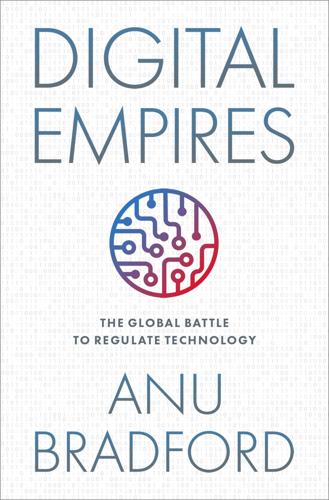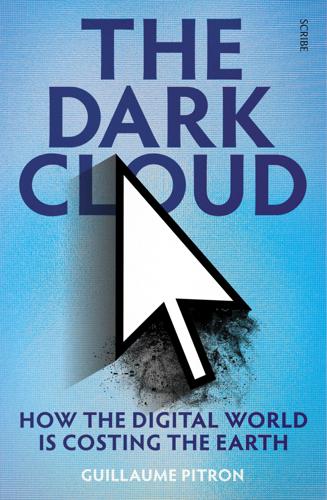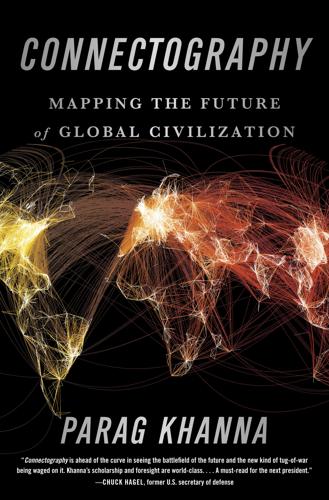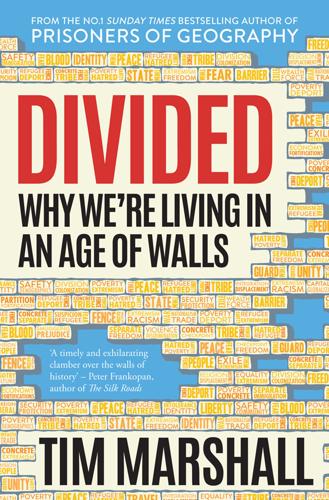
Digital Empires: The Global Battle to Regulate Technology
by
Anu Bradford
Published 25 Sep 2023
Another question is whether an unintended consequence of the EU’s digital sovereignty agenda is that it may even lend legitimacy to more extreme variants of digital sovereignty that authoritarian governments, including most prominently China and Russia, are pursuing. As such, the digital sovereignty narrative can be invoked to justify many forms of government control over the internet, offering a blueprint for autocracies to engage in extensive surveillance of their citizens. For example, China deploys the notion of digital sovereignty to justify the extensive government control of the digital sphere that goes beyond protectionism and competitiveness concerns and severely limits individual freedoms.
…
Scott Malcomson goes as far as characterizing the “mission for self-sufficiency” as “the most striking geopolitical feature” of the current era, as major economies are retreating from globalization and ushering in “the New Age of Autarky.”206 If the US and the EU refashion their economies around a technological self-sufficiency and digital sovereignty agenda, they risk diminishing their ability to convince the rest of the world of the merits of an open digital economy and their respective regulatory models. Governments around the world are starting to deploy this concept of digital sovereignty as a veneer to legitimize measures such as data localization and industrial policies designed to favor domestic technologies over foreign ones. The EU’s emphasis on digital sovereignty as a central policy objective in the EU may even lend legitimacy to the more extreme variants of digital sovereignty that authoritarian governments such as China and Russia are pursuing. The digital sovereignty narrative can be invoked to justify many forms of government control over the internet, offering a blueprint for autocracies to engage in extensive surveillance of the digital space.
…
Int’l Pol.], 2019(4), at 57, http://qjip.tsinghuajournals.com/article/2019/2096-1545/101393D-2019-4-103.shtml. 6.Id. at 58 (unofficial translation). 7.Recovery Plan: Powering Europe’s Strategic Autonomy—Speech by President Charles Michel at the Brussels Economic Forum, European Council European Union (Sep. 8, 2020), https://www.consilium.europa.eu/en/press/press-releases/2020/09/08/recovery-plan-powering-europe-s-strategic-autonomy-speech-by-president-charles-michel-at-the-brussels-economic-forum/. 8.Jeremy Shapiro, Introduction: Europe’s Digital Sovereignty, in Europe’s Digital Sovereignty: From Rulemaker to Superpower in the Age of US–China Rivalry 6 (Carla Hobbs ed., 2020), https://ecfr.eu/wp-content/uploads/europe_digital_sovereignty_rulemaker_superpower_age_us_china_rivalry.pdf. 9.Emma Rafaelof, U.S.-China Econ. and Sec. Rev. Comm’n, Unfinished Business: Export Control and Foreign Investment Reforms 9 (2021), https://www.uscc.gov/sites/default/files/2021-06/Unfinished_Business-Export_Control_and_Foreign_Investment_Reforms.pdf. 10.Export Control Reform Act of 2018, 50 U.S.C. §§ 4801–4852; see discussion in Cong.

The Dark Cloud: How the Digital World Is Costing the Earth
by
Guillaume Pitron
Published 14 Jun 2023
‘This event symbolises the kinds of difficulties faced by cloud companies setting up data centres in the far north’, says Hanssen. Ultra-fast fibre-optic cables for linking Asia and Europe via the Arctic (see chapters nine and ten) could indeed make the Nordic countries a ‘natural’ choice for data storage.55 But claims for digital sovereignty by a growing number of states could rearrange the cloud’s geography. This desire to control their own information flows gives rise to a new power paradigm, whereby it is more important for them to consolidate their infrastructure on home soil than it is to scatter it around the globe. Since 2015, Russia requires all its citizens’ personal data to be located on its territory.56 The European data infrastructure project Gaia-X also seeks to establish a sovereign cloud on the old continent, bypassing the services of the American platforms.
…
In the twenty-first century, states will be prepared to go to war so that we can amuse ourselves. Regardless of what the proponents of dematerialisation say, we will continue to be governed by the fundamental particles of matter, just as much as by time’s arrow, the force of gravity, and the laws of thermodynamics. Europe’s quest for digital sovereignty In the shorter term, China’s ascension in the cable industry doesn’t necessarily entail Western reliance on infrastructure ‘made in China’, the operation of which could be hampered by the CCP. There is substance to such concerns, the Trump administration having barred in 2020 the PLCN cable that should have connected Hong Kong to Los Angeles.57 The problem was that one of the investors in the cable, alongside Facebook and Google, was Hong Kong investor Pacific Light Data Communication.
…
‘We are currently witnessing the privatisation of a part of the internet by a clutch of players, and nobody is batting an eyelid’, according to a subsea telecommunications expert.63 A first political test was resolved around the destiny of Alcatel Submarine Networks. The French industrial company has been the property of Nokia since 2016. However, the Finnish group delivered a mixed performance, and rumours of Nokia selling ASN had, until 2019, been circulating in the industry. Yet Alcatel Submarine Networks is seen as a key to Europe’s digital sovereignty, allowing it to hold onto a technology that, today, only benefits a handful of countries. That is why ‘ensuring ASN remains a European asset is a decisive factor for not depending on a non-European cable ship that could impose its own law’, a director of an undersea cable company warned. Paris is nevertheless aware of what’s at stake.

Ours to Hack and to Own: The Rise of Platform Cooperativism, a New Vision for the Future of Work and a Fairer Internet
by
Trebor Scholz
and
Nathan Schneider
Published 14 Aug 2017
Palak Shah - A Code for Good Work 34. Micky Metts - Meet Your Friendly Neighborhood Tech Co-op 35. Michael Peck - Building the People’s Ownership Economy through Union Co-ops 36. Mayo Fuster Morell - Toward a Theory of Value for Platform Cooperatives 37. Francesca Bria - Public Policies for Digital Sovereignty 38. Miriam A. Cherry - Legal and Governance Structures Built to Share 39. Rachel O’Dwyer - Blockchains and Their Pitfalls 40. Astra Taylor - Non-Cooperativism Contributors Acknowledgments Further Resources PART 1 SOMETHING TO SAY YES TO 1. WHAT THIS IS AND ISN’T ABOUT TREBOR SCHOLZ AND NATHAN SCHNEIDER This is a guidebook for a fairer kind of Internet.
…
This should be considered when peers or policy makers decide what kinds of platforms they are going to build or promote. According to our analysis, platform cooperativism will further not only self-governing processes but also the capacity for people to create resources and services that garner a good online reputation. 37. PUBLIC POLICIES FOR DIGITAL SOVEREIGNTY FRANCESCA BRIA The scale of the transition to platform capitalism is massive. The builders of emerging online platforms aim to become pervasive across all productive sectors, and to permeate every level of society: the level of the individual (with smartphones and wearable technology, lenses, glasses); the level of the home (“smart homes,” smart power meters and Internet-connected sensors); and the level of “smart cities” (driverless cars, networked transportation services; energy grids, drones, ubiquitous digital services).

Connectography: Mapping the Future of Global Civilization
by
Parag Khanna
Published 18 Apr 2016
Though the Internet has no central authority, it is moving from its halcyon days as an ungoverned stateless commons with only technical supervision into a geopolitical arena of intense complexity. The Web’s founding father, Sir Tim Berners-Lee, has warned against strategic manipulation and advocated a cyber Magna Carta that guarantees the Internet remain a neutral utility. But it is too late: The Internet already shows signs of both digital sovereignty and feudalism, with rivalries not mapping neatly onto political geography. As the U.S. Commerce Department steps down as the de facto Webmaster, the Internet’s governance is evolving beyond the bottom-up, multi-stakeholder framework managed by the Internet Corporation for Assigned Names and Numbers (ICANN) for the past two decades toward a system with greater unilateral government interventions as well as international oversight through the International Telecommunication Union (ITU).
…
But the U.S. government doesn’t need to be the Internet’s regulator to penetrate into its furthest corners and swallow infinite quantities of data: The PRISM program of the National Security Agency (NSA) enabled it to access almost everything one could want to know. Perversely, however, it is the reaction to the NSA’s surveillance programs that has “Balkanized” the Internet. Countries of all stripes have asserted their digital sovereignty, either to protect their citizens from invasions of privacy (Germany) or to gain access to more of their citizens’ data (Russia). China is launching an allegedly unhackable quantum communications network between Beijing and Shanghai, with plans for a corresponding global satellite network. Whether these governments seek to monitor, filter, or protect digital flows, the geographic (and legal) location of servers, cables, routers, and data centers now matters as much as the geography of oil pipelines.

Divided: Why We're Living in an Age of Walls
by
Tim Marshall
Published 8 Mar 2018
Because WeChat is not public: if you share something within your chat group, it is not shared by massive numbers of people, and what is shared is shared slowly. This makes it easier to monitor – it’s divide and rule.’ The new Chinese cyber-security legislation, which came into law in 2017, has built the walls higher than ever, metaphorically speaking. The legislation, formulated to ensure ‘digital sovereignty’, includes classic ‘catch-all’ laws designed to mean what the Party interprets them to mean. For example, if a foreign company is involved in any part of China’s critical information structure, it must store all of its information on physical databases inside China. What constitutes ‘critical’ has not been defined.